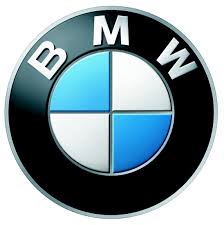X Series E70 X5 3.0d (M57T2) OFFRD

operating points by conducting measurements.
From these measurements, an adjustment value (code) is generated for each injector.
The structure of the alphanumerical code depends on the emissions standard of the engine.
•
EURO 3 exhaust emission regulations: six-digit (e.g. 78SNGT)
•
EURO 4 exhaust emission regulations: seven-digit (e.g. 88S66NB)
During vehicle assembly, the adjustment value of each injector is stored in the DDE control unit after the DDE
control unit has been installed. The adjustment values are assigned to the individual cylinders according to the
installation of the injectors. With these adjustment values, the DDE control module makes slight corrections to
the calculated injection quantities and thus reduces the deviation specific to the injection quantity for each
cylinder.
If injectors are renewed or exchanged, care must be taken to ensure that the alphanumerical code printed on
each injector is assigned to the correct cylinder in the DDE control unit.
The BMW diagnosis system has the service function "Injection quantity compensation". With this service
function, the code for each cylinder can be changed and stored on the DDE control unit.
For cylinders that do not need a new adjustment value, the previous adjustment values remain unchanged in the
DDE control unit. Injection quantity compensation must also be performed if the DDE control unit is replaced and
communication was no longer possible with the old control unit.
The codes for the injectors installed must be read off and stored in the DDE control unit.
Zero-quantity adaptation
Zero-quantity adaptation is the adaptation process that guarantees that a defined pre-injection is available for
each injector after the running-in phase (approx. 1500 km).
For the engine to comply with the EURO 4 exhaust emission regulations, the pre-injection quantity, which is
very small, must be precisely metered.
Because of the deviation in the injection quantity over the running time, the zero-quantity adaptation is performed
continuously by the DDE control module.
For each cylinder, a small quantity of fuel is injected in overrun mode. This quantity is continuously adjusted until
the DDE recognises the required torque. The irregular rotation of the crankshaft is used to calculate the torque.
The irregular rotation is recorded by the crankshaft sensor.
The DDE can thus recognise the activation duration from which the respective cylinder starts to work. During
zero-quantity adaptation, the amount of fuel injected is used by the DDE as a correction value for the pre-
injection characteristic map.
Zero-quantity adaptation takes place alternately from one cylinder to the next during each overrun phase:
•
Engine speed: 1500 to 2500 rpm (engine at operating temperature)
Zero-quantity adaptation has no effect on fuel consumption, as only a very small amount of fuel (approx. 1 mm
3
) is injected into each cylinder.
Mean quantity adaptation
Mean quantity adaptation is the adaptation process in which the fuel-to-air ratio is corrected (partial-load range).
This correction is performed by adjusting the air mass using the exhaust gas recirculation valve.
While the injection quantity compensation and zero-quantity compensation do not require additional
components, an oxygen sensor is required for mean quantity adaptation. The oxygen sensor is a broadband
oxygen sensor with continuous characteristic curve.
Mean quantity adaptation is not a "quick" adjustment, but rather an intelligent learning process.
A lambda error is "learnt" in a characteristic map and is permanently stored in the DDE control unit (EEPROM).
The characteristic map must be reset (deleted) in the EEPROM if any of the following components is replaced:
SBT EURO 4 exhaust emission regulations and E-OBD for M47TU diesel engines M47TU, M5
BMW AG - TIS
04.02.2013 14:09
Issue status (12/2007) Valid only until next DVD is issued
Copyright
Page - 4 -
